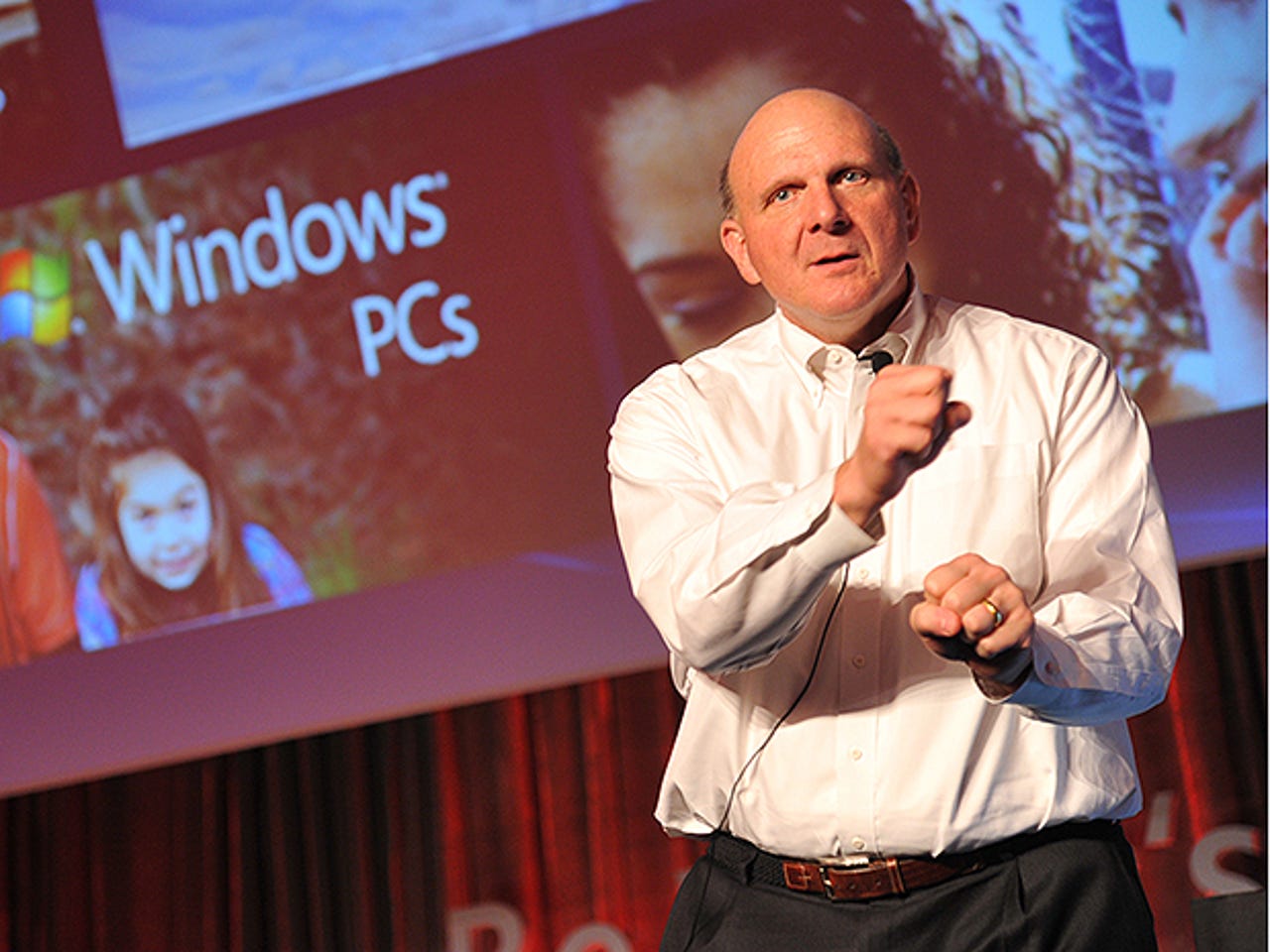Steve Ballmer: Can anyone make us so super-excited again?


Steve Ballmer has presence — that indefinable something that says that in a room full of a thousand or so people, he will stand out. You will notice him. He also talks loudly — very loudly and fast. And he smiles — a lot. And his smile is big and broad and all embracing.
When Ballmer smiles in that room full of a thousand people, a fair proportion of those people will smile too.
When I first met Ballmer, it was in a room full of people but only around 20 or 30, not thousands.
It was October 1998 and the-then secretary of state for trade and industry, Peter Mandelson — along with Mike Norris, the chief exec of Computacenter — was there with Ballmer in a small room in Computacenter's London office where the UK government was launching a new initiative.
The speakers were talking in almost hushed tones. It was a small audience, and it was business-like, efficient and completely unremarkable. A typical government press announcement, in fact. Ballmer was standing at the back, keeping quiet and looking attentive.
Then it was his turn to talk. He stepped up to the rostrum, smiled at us and said: "I JUST WANT TO TELL YOU HOW SUPER-EXCITED I AM TO BE HERE TO LAUNCH OF THIS FANTASTIC NEW PROJECT," before carrying on for five minutes — all delivered at a volume that could have comfortably filled Carnegie Hall, let alone a small office in London.
At least four or five people, myself included, almost jumped out of our seats with surprise — but he had our full attention.
Norris was smiling, I was smiling, almost everyone was smiling. Even the minister could manage a half-smile. Ballmer was in his element and his element was talking. Talking in a really loud voice.
Another time I saw him was in the US at a large conference. Once again he was in his element spreading the word to a large room and beating the Microsoft drum.
And now he is gone. Well, sort of: last week he stepped down from Microsoft's board (he retired from the role of CEO back in February last year), but still remains Microsoft's largest independent shareholder.
So what to make of the Ballmer years? Ted Schandler, at Forrester, is a long-time Microsoft watcher and he pointed out that when Ballmer took over from Bill Gates as CEO in 2000, the company's revenues were $21bn and the business was led by desktop software.
Under Steve's guidance, he says, "Microsoft made massive inroads into enterprise server software and tools while investing, but not really winning, in consumer services and certainly not in mobile devices".
He also pointed out that Microsoft's licensed software business model has suffered, as "Apple, Google, and Amazon have become enterprise suppliers". So even as Microsoft's revenue more than tripled to $73bn in 2012, "things didn't feel good", he says. On balance he thinks it was "a good decision for Steve to step down and pass control to someone else, probably an outsider".
There is little doubt that Ballmer and Gates made a great team. The conventional view is that Gates was the brains of the outfit then Ballmer was the salesman selling the brain's inventions. I am not sure that I hold with it — or at least, not entirely.
Gates and his wife have set themselves the task of saving the world, or at least as much of it as they and their billions can. Ballmer just wants to save a basketball team, the LA Clippers. Some sports fans would say that given the state of the Clippers franchise, the two task are quite comparable in terms of difficulty.
As I have said elsewhere, I have been writing about this business for more than 30 years, which is almost as long as Gates and Ballmer have been around it and in that time we have seen a lot of changes, but one of the biggest, I believe, has been the change in personnel.
Back in the 80s the IT revolution was driven by characters, real people who were personalities who, to some extent, you could empathise with. They have almost all gone — perhaps the last two of that era who are still working in the industry full time are Oracle's Larry Ellison and Michael Dell.
Perhaps the tech world has grown so complex it is difficult for any company to be run by one person; they have been taken over by the many, rather than the few, and most of them are accountants. If that is true it would be a pity.
So keep going Steve. I will look at your upcoming games at the Clippers and will stand ready to get super-excited all over again.